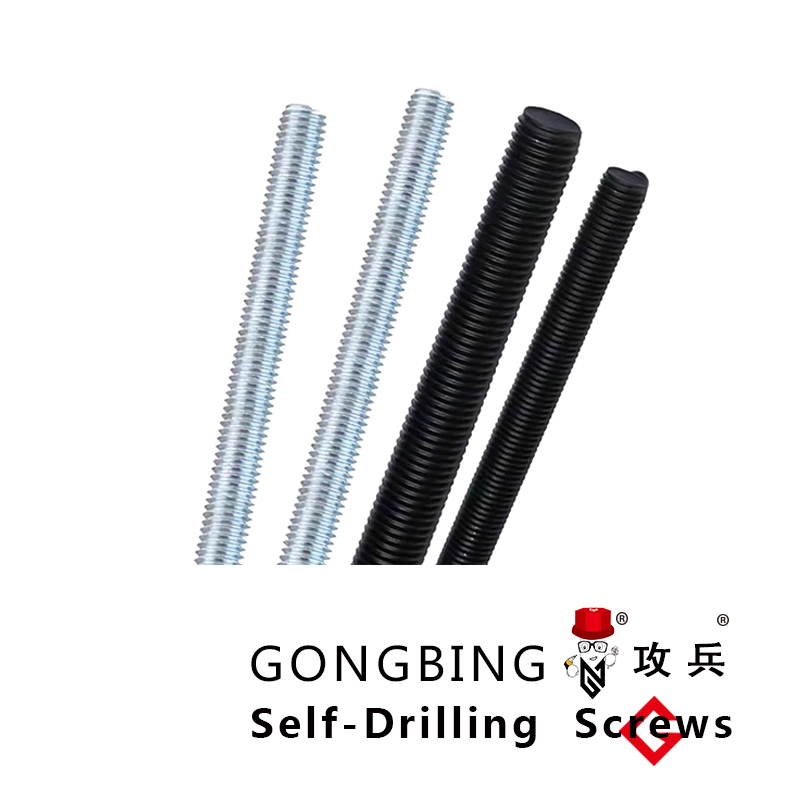Exploring Innovative Solutions for Self-Fastening Screws in Modern Engineering Applications
The Emergence of Self-Fastening Screws Revolutionizing Assembly Processes
In the realm of engineering and manufacturing, the evolution of fastening technologies has significantly impacted how products are assembled. Among these innovations, self-fastening screws have emerged as a game-changer. Designed to streamline assembly, reduce labor costs, and enhance product durability, self-fastening screws are increasingly becoming the preferred choice for various industries, from construction to electronics.
Understanding Self-Fastening Screws
Self-fastening screws, also known as self-tapping screws or self-drilling screws, are specially designed to create their own mating threads as they are driven into the material. This unique feature eliminates the need for pre-drilled holes, significantly speeding up the assembly process. Typically made from durable materials such as stainless steel or alloy steel, these screws are engineered to provide optimal performance in diverse applications.
The primary mechanism behind self-fastening screws involves a sharp point and unique thread design. As the screw penetrates the substrate, the threads cut into the material, securing a tight fit. This design not only ensures a strong hold but also minimizes the risk of stripping and loosening over time, a common issue associated with traditional fastening methods.
Advantages of Self-Fastening Screws
1. Time-Efficiency One of the most prominent advantages of self-fastening screws is the reduction in assembly time. Since they do not require pre-drilling, workers can complete tasks more quickly, enhancing productivity on the assembly line.
2. Cost-Effective By eliminating the need for pre-drilled holes and reducing labor time, self-fastening screws can lead to significant cost savings. Additionally, the reduced risk of damage to materials during assembly translates to lower material costs.
3. Enhanced Durability The design of self-fastening screws allows for a more reliable grip, making them less susceptible to loosening due to vibrations or stress. This quality is especially important in industries where product reliability is paramount, such as automotive and aerospace manufacturing.
4. Versatility Self-fastening screws come in various styles, sizes, and materials, making them suitable for a wide range of applications. Whether used in wood, metal, or plastic, these screws can adapt to different environments, making them a versatile choice for manufacturers.
self fastening screws

5. Simplified Processes The ease of use associated with self-fastening screws simplifies the assembly process. This simplicity enables workers, regardless of skill level, to engage in assembly tasks efficiently, reducing the need for extensive training and improving overall workflow.
Applications in Various Industries
The application of self-fastening screws spans across numerous sectors. In the construction industry, they are extensively used for attaching drywall, securing roofing materials, and assembling metal frames. Their ability to penetrate various substrates without pre-drilling makes them invaluable for fast-paced construction environments.
In the automotive sector, self-fastening screws are utilized in engine assemblies, bodywork, and interior fittings. The reliability of these screws ensures that critical components remain securely fastened, even in high-stress situations.
The electronics industry also benefits from self-fastening screws. They are commonly used in assembling enclosures, circuit boards, and other components where precision and reliability are essential.
Future Trends and Innovations
As industries continue to evolve, the demand for efficient, reliable fasteners will persist. Research and development in self-fastening screws are focusing on enhancing their performance further. Innovations such as improved thread designs, coatings for corrosion resistance, and environmentally friendly materials are on the horizon.
Moreover, the integration of smart technology into fastening systems is expected to gain traction. Sensors that can monitor screw integrity and provide real-time feedback to manufacturers could revolutionize quality control processes.
Conclusion
Self-fastening screws represent a significant advancement in fastening technology. Their ability to enhance efficiency, reduce costs, and provide reliable performance makes them an essential component in various industries. As manufacturing processes continue to evolve, the importance of innovative solutions like self-fastening screws will only grow, paving the way for more streamlined and effective assembly techniques in the future. This evolution not only underscores the creative engineering and design principles behind these fasteners but also highlights their critical role in the advancement of modern manufacturing practices.
-
Wedge Anchor Bolts: Secure Fastening SolutionsNewyddionAug.05,2025
-
Insulation Fixings: Secure and Durable SolutionsNewyddionAug.05,2025
-
Full Threaded Studs: Versatile Fastening SolutionsNewyddionAug.05,2025
-
Expanding Fasteners: Secure and Reliable SolutionsNewyddionAug.05,2025
-
Butterfly Toggle Anchors: Secure and Easy to UseNewyddionAug.05,2025
-
Bracing Solutions for Steel StructuresNewyddionAug.05,2025
